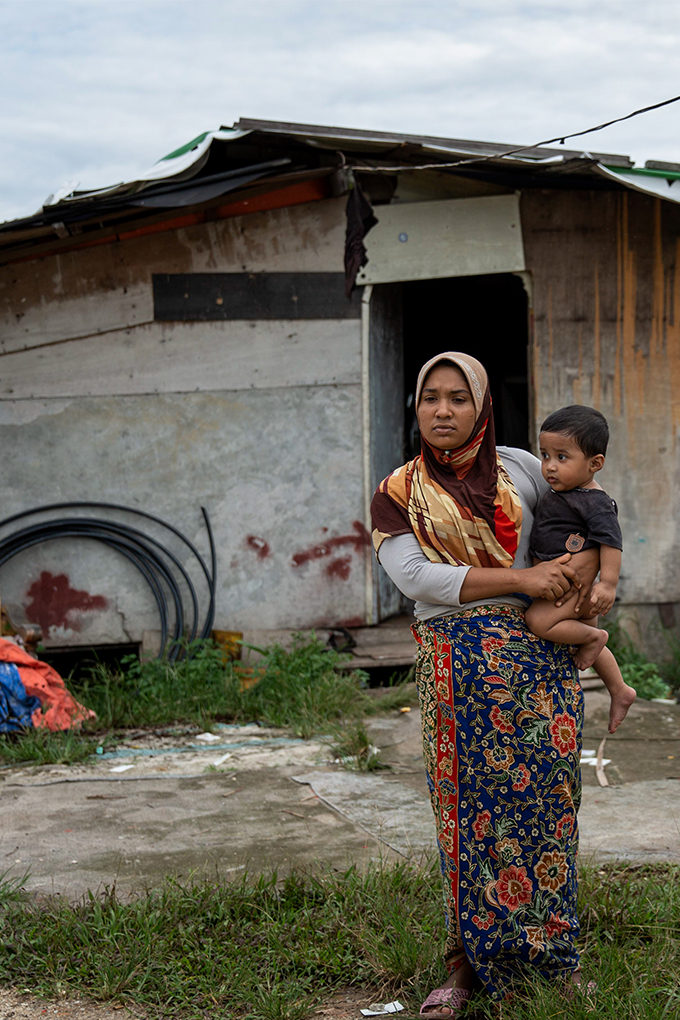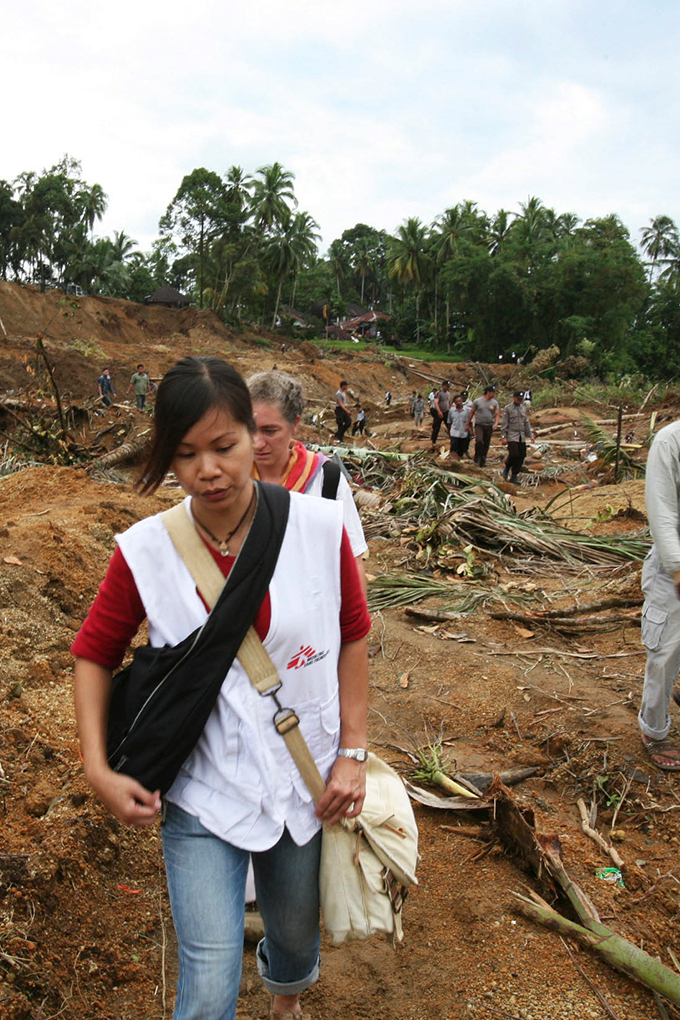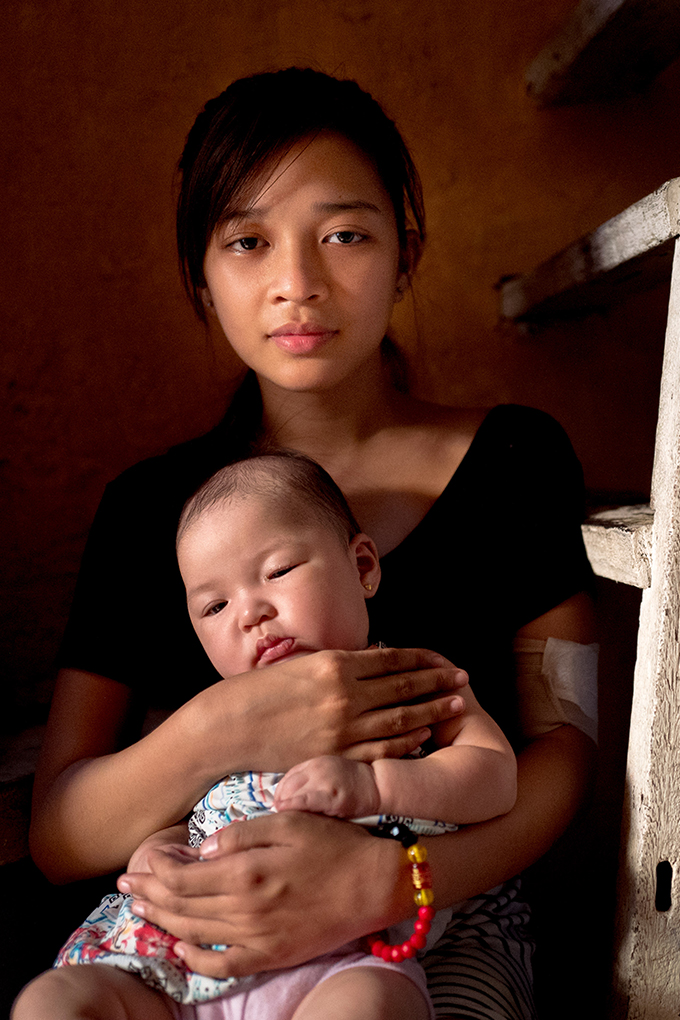“It is nothing short of heartbreak and horror to witness the scale of destruction and devastation brought about by armed conflict and natural disasters,” says Dr Marlene Lee, clinical psychologist and volunteer field worker for Médecins Sans Frontières (MSF), also known as Doctors Without Borders. “I had to be able to hold space for trauma survivors as they recounted their stories of loss and tragedy, and to be present with their pain. It could get overwhelming at times.”
In her life-altering role as a field psychologist, Dr Lee developed and implemented community-based mental health programs, trained and supervised local counsellors, and provided psychosocial support to victims of armed conflict in Kashmir, India, and Yambio, South Sudan. Dr Lee was also part of the emergency intervention team for the 2008 Sichuan earthquake in China, 2008 Cyclone Nargis in Myanmar, and the 2009 Padang earthquake in Indonesia. She shares more about the horrors of her experience, and healing with Vogue Singapore.
What motivated you to be in your line of work?
I’ve always found it extremely rewarding to be able to help others and that spurred me to embark on a helping profession like clinical psychology in the first place. Right after completing my doctoral training in the United States in 2005, I came to Singapore to take up an academic position at one of the local universities. About a year and a half later, I arrived at a crossroads in my life; I wanted to do something more hands on… to help people in the places with the greatest needs. When a friend introduced me to MSF, I knew immediately that I wanted to volunteer with them.

As an aid worker, there are some things you can’t unsee. How did you cope despite having to be ‘active’ in the midst of such chaos and tragedy?
It helped to have the right mindset. Emergency interventions can be quite chaotic, so I often reminded myself to be prepared, because anything could happen. And when the unexpected did happen, I strived to be as flexible as possible and keep the big picture in mind. Regular exercise also helped, though sometimes it was necessary to be ‘creative’ due to security and safety concerns. For instance, we had movement restrictions in my project in South Sudan and the only place that was not off-limits was the small airstrip close to our compound, so a couple of times a week, my colleague and I took to running up and down the dirt runway whilst keeping watch for inward bound airplanes!
It’s really all about our patients, the people that we are trying to assist. When someone tells you how appreciative they are that you’ve travelled such a long way to help their community… or when a family generously invites you into their makeshift home for tea despite recently losing everything—and I mean everything—to a cyclone, you know without a doubt that it is all worth it.

What triggers you?
Stereotypes are a big trigger for me. I’m always a bit apprehensive when people ask what I do for a living. In the past, when I’ve shared that I am a psychologist, a typical response would be “Can you read my mind?” and occasionally, “Do you have a couch in your office?” I remember one time attending a meeting with other aid agencies. The participant next to me introduced himself and asked me about my role with MSF. “I’m a psychologist,” I replied. He immediately got up and walked to the opposite side of the room. Looking back, the scenario is pretty hilarious, but I recall being confused and a tad offended when it happened.

What keeps you going even when it’s tough?
My time in the field gave me the opportunity to bear witness to the resiliency of the human spirit—the remarkable grace, courage, and determination displayed by survivors as they reclaim their lives in the aftermath of a horrendous catastrophe—it was this that kept me going during some of the more challenging times.
When do you know you’re reaching your limit and need to self-preserve?
During my time in the field, I tried to be extra mindful about my limits and take sufficient breaks and make time for self-care, but this was extremely challenging as the clock is constantly ticking and everything is in a state of flux in most emergency projects. For me, the clearest indicator that I was reaching my limits was when I got irritable and grumpy with my own teammates. We often joked that I was overdue for my rest and relaxation.

What do you know for sure about mental health?
My experience working with trauma survivors in the field has shown me first-hand how a person’s existing strengths and protective mechanisms have the capacity to mitigate the adverse impact of trauma exposure and facilitate long-term recovery. I’ve incorporated these insights into my current psychotherapeutic approach and clients who work with me can expect a strong focus on resiliency and self-empowerment to address their mental health issues.
I very quickly came to the realisation that life is short and it is indeed possible to lose everything in the blink of an eye. So, these days I strive to appreciate what I already have and make the most of my present moment.

Médecins Sans
For more stories like this, subscribe to Vogue Singapore.





